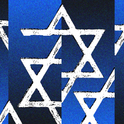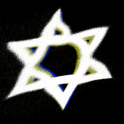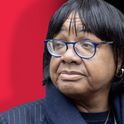People travel from across the world to convert to Islam at Al-Azhar University (pictured, below right), the centre of Islamic scholarship in Egypt. The airy public office where my conversion was to take place was filled with an assortment of international visitors. It reminded me of the small claims court in California where I had once sued my landlord.
I'd come to Cairo the previous summer, in 2005, to work as a freelance journalist, and had fallen in love with a beautiful Egyptian doctor named Roda. I'd discovered that dating a Muslim Arab woman in Cairo is by no means straightforward. But we had persevered, and after a few months had decided to get married. The Koran, however, forbids marriage between Muslim women and non-Muslim men. If Roda and I were going to tie the knot, I had to convert first.
Each new arrival at the public office waited patiently for their turn to see the sheikh, who sat in the centre of the room on a Louis Farouk sofa upholstered in garish green with gold braid. He looked imperious in his spotless red fez wrapped around with a white cloth. His pebble glasses suggested long hours spent poring over arcane religious texts in dusty libraries. Sunshine streamed through the ornate windows and enveloped the sofa, the sheikh and the aspiring convert sitting beside him.
Brandishing the documents that they had brought with them to support their cases, the waiting crowd muttered quietly between each act of conversion as if enjoying a cabaret evening. Although the procedure was basically always the same, everyone kept an eye on what was happening in case any helpful tips emerged.

The largest wall of the office was lined with built-in cupboards bursting with stacks of yellowing religious literature and books in English, German and other languages. A printed sign on the back of the door read, "The procedure of embracing Islam is free of charge."
My companion for the day was Hanafi, my loyal doorman. I had no particular preference for his company; I just wanted to have someone with me on my journey. As we entered, we each uttered in a head-turning voice, "Salam aleikum," to register our arrival. The aspiring converts nodded solemnly and answered back piously as one. The sheikh turned his eyes towards us fleetingly and gave a faint nod.
"I recognise the sheikh from television," whispered Hanafi in his rustic-accented Arabic. "He's a big star." There were no empty seats, so we stood, quietly observing. On the sofa with the sheikh were two blonde middle-aged European women wearing white headscarves edged with gold. Though he was speaking to them in broken English, the sheikh radiated the calm confidence normally reserved for cardiac surgeons and barristers. The women looked nervous, and to my secret relief stumbled over their vows.
The ceremony was remarkably simple. All the aspirant had to do was say the shahada in Arabic—the powerful words of devotion that once spoken irreversibly confirm your acceptance of Islam—then repeat after the sheikh a few verses from the beginning of the Koran, much as you repeat ritualistic phrases in a Christian marriage ceremony. Conversion in Egypt is so simple that not all Muslim countries recognise the Al-Azhar process, believing it to be too fast to provide novitiates with a proper basis in Islam. For me, it was a bit of a disappointment: expecting some kind of theological test, I had brushed up on Islamic protocol surrounding topics like menstruation and halal dieting, just in case the sheikh decided to quiz me.
When each ceremony was complete, the sheikh invited the converts to jot down their names and some personal details in a big leather-bound tome, like a guestbook in a hotel. I wondered who was next and tried to calculate how long I would have to wait for my turn. Although the room was crowded, the sheikh was rattling through the procedure and I realised it would not be long.
"Would you like to sit down?" growled a voice at my elbow. A hunchbacked gnome of a man with a wispy beard was indicating some empty seats on the far side of the room. Pushing through the crowd, he gestured for us to follow. As we did so, I noticed that most people seemed to have dressed for the occasion: the women wore headscarves or full-face veils; the men sported beards, prayer beads and zebibas—prayer bruises on the forehead. Outward signs of devotion were common, and whenever the sheikh said "ahamdulillah" or "inshallah"—which was almost every time he spoke—everyone automatically repeated the words.
"Would you like some tea?" the gnome asked huskily as he seated us beneath the Islamic map. Without waiting for a reply, he hobbled off behind a wooden screen decorated with tin foil in the corner of the office and began noisily filling a kettle.
I looked at the people around me. Nearest us were three black American women covered from head to toe, except for their hands, which were hennaed. They were discussing the life of the Prophet in a southern drawl. Next to them sat a middle-aged European woman wearing a veil and an attractive unveiled blonde girl. They were speaking in French to an Egyptian youth with punky gelled hair who appeared to be the girl's boyfriend. The boy and the woman were explaining something to the girl, who looked uneasy. In a corner by one of the pot plants sat three teenagers, who looked like Uzbeks, dressed in short Muslim Brotherhood trousers, skullcaps and galabeyas (tunics). They had beards without moustaches, and each held a copy of the Koran. Faces turned to the ceiling, their eyes were rolled back in ecstasy and a stream of quiet prayers issued from their lips.
Conversion to Islam can make a big difference to your personal status. In most Arab countries, it brings substantial social advantages; in other states, like China, Russia and Burma, the opposite is the case. In the west, most people and governments regard belief as a private affair; you can change your religion on a whim and intermarriage between people of different faiths is an everyday occurrence. In Egypt, however, switching religion is a deadly serious business, particularly for Muslims who want to become Christians. Your faith is considered as fundamental a part of your identity as your date of birth or gender.
As we waited, the hunchback hobbled back and forth between his tea-making facilities behind the foil-wrapped screen and the crowd of visitors. Refilling teacups with one hand, he handed out wads of musty-smelling religious books with the other. Donations were constantly offered and accepted.
"Looks like it won't be long before I'm up," I said, prodding Hanafi. He didn't look round; the presence of the celebrity sheikh had stunned him into silence.
Suddenly a loud wailing sound filled the room. Thinking it must be the fire alarm, I leapt out of my chair. Everyone in the room leapt up too, including the sheikh. "Let's go!" he shouted.
"Let's go!" echoed the aspiring converts jumping to their feet.
"Prayer time!" boomed the sheikh, clapping his hands.
"Prayers?" I exclaimed, turning to Hanafi, panic sweeping over me. It was not a fire alarm but the call to prayer, so amplified the words were distorted beyond all recognition.
Wasting no time, everyone began eagerly filing out into the corridor.
"I don't know how to pray," I whispered to Hanafi in terror. "I can't go into the mosque with all these people."
"Just do as I do," said Hanafi. "It's easy."
"Easy? You have got to be kidding. In front of this lot? No way."
"OK," replied Hanafi, thinking on his feet. "Why don't we just stay at the back and wait for them to clear off? No one will notice if we stay behind."
"Good thinking," I replied. "Look busy." We walked briskly around the room as if we were going somewhere. The prayer call was growing more fervent by the second and the office was rapidly emptying.
There was a tug at my elbow, and the sheikh's assistant was once again at my side. "Are you coming to pray?" he asked. Although this was a question, I could tell there was only one right answer.
"Well, I, er, I just prayed actually," I replied awkwardly.
"Just before we arrived," Hanafi added.
Unimpressed by this pathetic excuse, the sheikh's assistant scowled at me. But there was no time to hang around. The mosque was calling and he quickly disappeared. Hanafi and I were alone. Then it dawned on me: I had not even converted yet and already I was telling lies to project an image of piety. My God, I thought, I am more Egyptian than I realised.
Hanafi and I inspected the map on the wall and admired the plants until the novitiates started to trickle back. I leafed through the heavy leather conversion book, scanning the entries on the tissue-thin paper. On its pages were displayed the full name, conversion date, original religion, new Islamic name, nationality, address and signature of each convert, next to the sheikh's extravagantly loopy signature. I was struck by how many converts had passed through the doors just in the last month. There was an amazing range of nationalities—Indians, Uzbeks, Americans, French, Chinese, Italians—each with a personal story of what had brought them to Al-Azhar.
Before long the sheikh arrived back, smiling and looking relaxed. Hanafi and I resumed our places and waited for the queue for salvation to restart.
"Some literature, sir?" asked the hunchback with a smile, appearing once again at my elbow. A yellowing stack of poorly bound second-generation photocopies was placed under my nose. I glanced at the top title, The Omrah, the Haj and Human Rights in Islam, by Dr Muhammad Abdul Wahid Wafy.
"Thank you very much," I said politely, taking the book from his hand and proffering some cash. Satisfied, the hunchback sloped along to the next customer.
"Hey!" whispered Hanafi. "It says over there, 'The procedure of embracing Islam is free of charge.'"
"The tip is for the literature," I whispered back, holding up the book.
Suddenly I heard my name called and in a moment I was pushing through the chairs, making my way to the front and taking my place on the couch next to the sheikh. I could feel eyes upon me as the sheikh asked if I knew what the five pillars of Islam were. Behind his glasses I could barely make out his cloudy eyes. When I told him I did, he counted them off for me on his fingers. I realised this was not an exam I was going to fail.
Then he asked why I had come that day to convert in the presence of God. When I explained that I wanted to marry a Muslim woman, his eyebrows arched a little and he looked perturbed. "Is that the only reason? Nothing else?"
"Well, I suppose I don't really believe in miracles," I began, groping around for an alternative explanation. "I could never understand how wafers could be turned into the body of Christ."
"Yes, total madness isn't it?" the sheikh interrupted, throwing up his hands. "No other reasons? That's fine then," he said. "Just repeat after me…" Then he asked me to repeat some verses from the Koran in Arabic and say the shahada, which I managed, more or less. "Congratulations," said the sheikh briskly. "You are now a Muslim. Hold on a minute and I will fill out your conversion certificate." The whole process had taken no more than a few minutes.
As he filled out the certificate, the sheikh asked me a few polite questions about myself—where I was from and how long I had been in Cairo. As we talked, I entered my details in the book on the table in front of us.
"And what shall your Islamic name be?" asked the sheikh.
"Sami Hussein?" I said hesitantly.
"Welcome, Sami Hussein," declared the sheikh in a loud voice.
He told me that now I had embraced Islam, marriage to a Muslim woman was possible and he reminded me that my children must be Muslim too. As he spoke, I could see in his face deep satisfaction that I had converted. I had become more acceptable to him, and that made me sad. The reminder about my unborn children made me uneasy and I wondered fleetingly if that had something to do with conversion being so easy.
What I wanted to say to the sheikh was that, although like him I was seeking the truth, I doubted those who claimed to have found it. I wanted to ask him why, if Islam was a religion of peace, the hairdresser in Istanbul Street—the road I lived on—divided the world into the "house of Islam" and the "house of war," and why I knew of many young Egyptians who would die to kill American women and children. I wanted to understand why the Koran was full of injunctions to fight and why the pain and suffering awaiting unbelievers is mentioned on almost every page. I wanted to understand why men of apparently perfect faith flew planes into buildings or killed women for staining their family honour.
But people who like to share their religious views with you rarely want you to share yours with them, and now did not seem like the right time for conversation. "I have just one final question," I stammered as I rose from my chair to leave. The sheikh looked at me imperiously, eyebrows arched above his thick glasses. I cleared my throat, again feeling all eyes in the room upon me. "Why are there so many Muslims in Chile?"
As we left Al-Azhar, the sheikh's assistant gave me a copy of my conversion certificate in triplicate. Outside in the sunny car park, Hanafi could barely contain his excitement.
"This is a joyous day," he said, slapping the roof of the car.
"Did my shahada come out all right?"
"It was all great! Thanks be to God."
"Thanks be to God I can now legally marry Roda," I replied. "I thought they might have barred me after they suspected I did not know how to pray."
"Don't worry about that," said Hanafi, beaming. "There is so much you have to learn. This is only the beginning."
The sun was setting in a fiery ball somewhere beyond Zamalek, the upmarket residential district on the island in the middle of the Nile, and as we drove back over the bridge to my little flat in Istanbul Street, I thought how strange it was that religion could ever be an obstacle to two people getting married. I realised that for months I had been trying to understand people's lives in Cairo, but somewhere along the way, leaning in closer to take a better look, I had passed through the looking glass and now found myself on the other side. By embracing Islam, and changing the most basic attribute any human being can have—my name—I had reached the point where I no longer knew myself.
While Hanafi drove, he excitedly described the rewards I could expect in the next life. There is no greater achievement in Islam than converting an unbeliever, so he held up Roda, my wife-to-be, as a particular paragon of virtue, likely to receive bounteous rewards in the afterlife for having shepherded me into the faith. As he spoke, I surveyed Cairo's decaying glory and thought back over the stories I had heard in the course of my year there, and a deep sadness welled up inside me.












